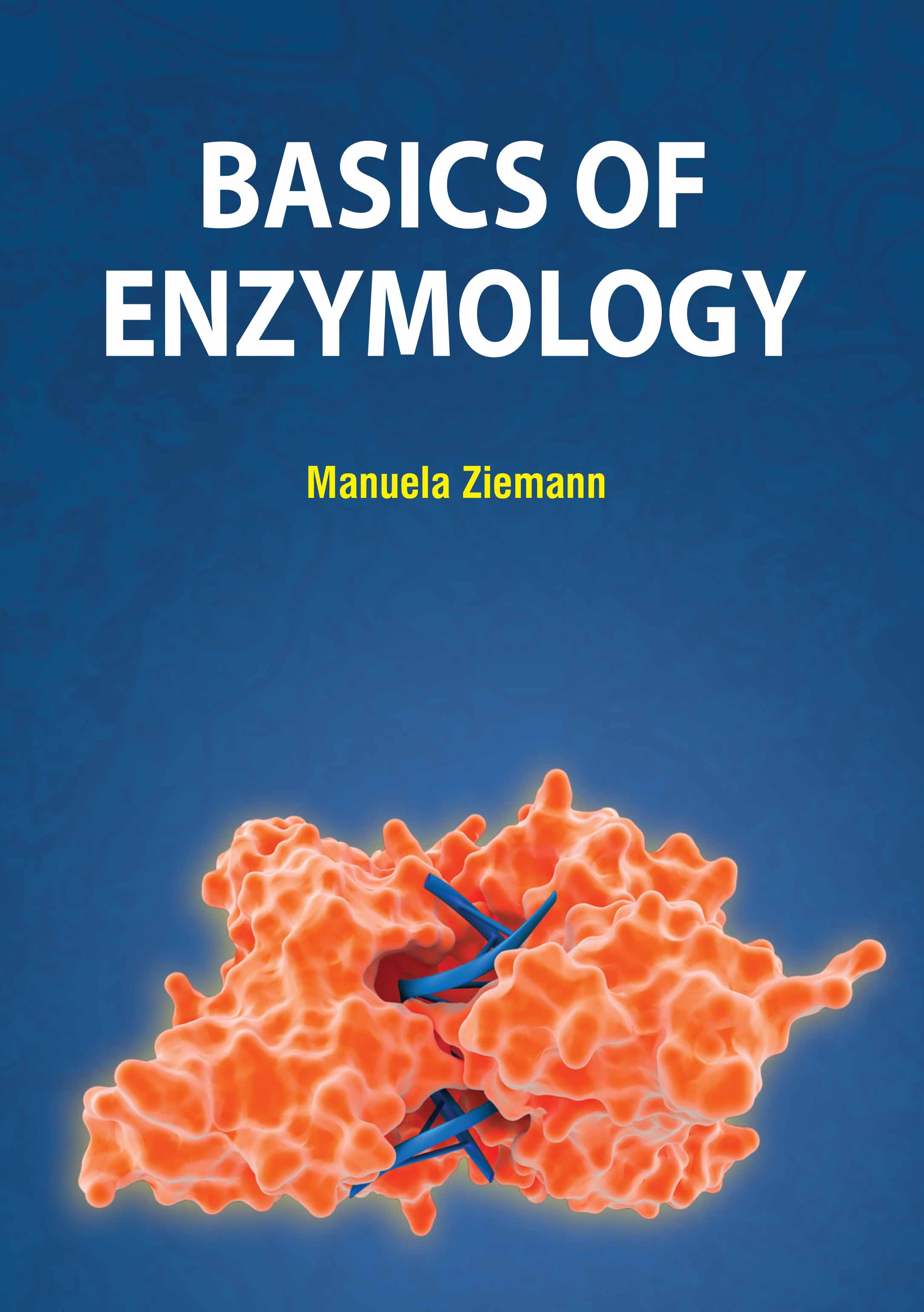
Basics of Enzymology
by Manuela Ziemann
| ISBN | 9781799600695 |
|---|---|
| Publisher | White Press Academics |
| Copyright Year | 2020 |
| Price | $249.00 |

by Manuela Ziemann
| ISBN | 9781799600695 |
|---|---|
| Publisher | White Press Academics |
| Copyright Year | 2020 |
| Price | $249.00 |
Enzymology is designed as a textbook for the students of biotechnology and chemical engineering. In addition, it will also serve as an invaluable reference for students pursuing their graduate and postgraduate degree programs in biotechnology, and all other life sciences programs that offer a course on enzymes. Enzymes are proteins that catalyze chemical reactions. IN enzymatic reactions, the molecules at the beginning of the process are called substrates and the enzyme converts them into different molecules, called the products. Almost all processes in a biological cell need enzymes to occur at significant rates. A chemical catalyst (enzyme) is a substance which increases the rate of a particular reaction without itself being consumed or permanently changed. A catalyst affects only the rate at which a reaction proceeds, that is, the rate at which a reaction reaches equilibrium, it does not enable the reaction to proceed past its normal equilibrium point. Because catalysts are not altered during the reaction, they are capable of carrying on their catalytic effects repeatedly. Consequently, very small quantities of catalysts are capable of affecting relatively large quantities of the reactants. Enzymes are organic catalysts which aid in facilitating chemical reactions in the body. Enzymes are substances which make life possible and which are found in natural, "live" foods and also in your body. Enzymes are the "work force" of the body. Without them, chemical reactions cannot take place, and hormones, minerals, and vitamins cannot carry out their functions. There are believed to be hundreds of thousands of enzymes in the body; different enzymes perform different functions. Enzymes are organic catalysts which aid in facilitating chemical reactions in the body. Enzymes are substances which make life possible and which are found in natural, "live" foods and also in your body. Enzymes are the "work force" of the body. Without them, chemical reactions cannot take place, and hormones, minerals, and vitamins cannot carry out their functions. There are believed to be hundreds of thousands of enzymes in the body; different enzymes perform different functions. Enzymology is a dynamic, rapidly growing field, and the goal of the book. The uniqueness of this book hence lies in the author's way of reconstructing the chapter under review by delving deep into the areas of the subject. Contents: 1. Enzymology: An Introduction, 2. Specificity of Enzyme Action, 3. Applied Enzymology, 4. Enzyme Purification and Chromatography, 5. Enzyme Kinetics, 6. Role of Vitamins as Coenzyme Precursors, 7. In Vitro Enzyme Activity, 8. Enzymes Metabolism.